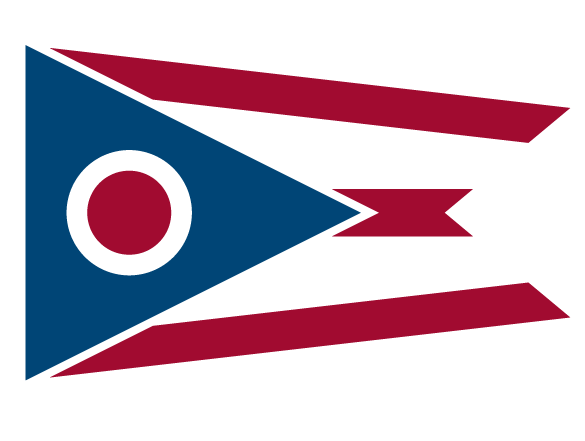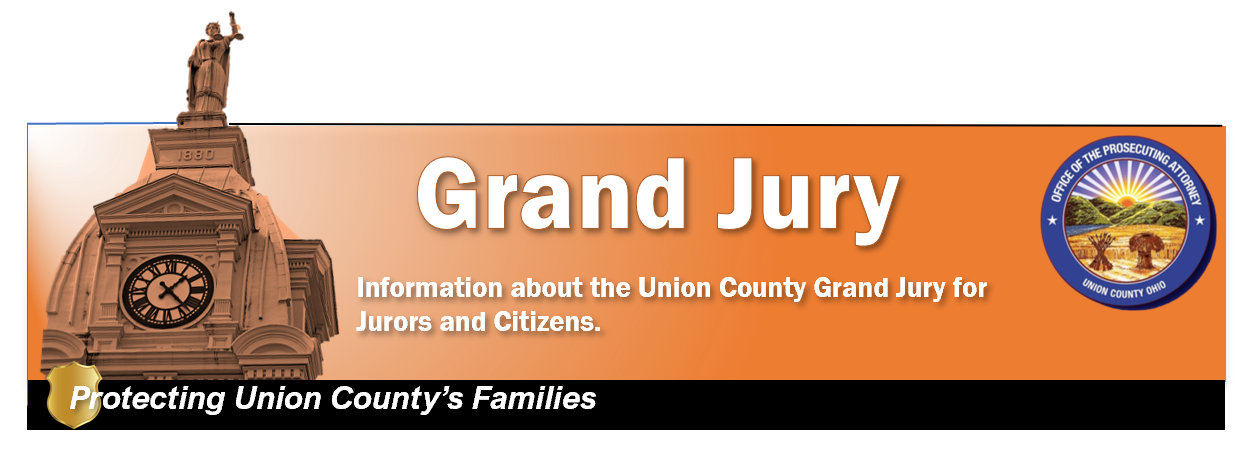The grand jury is an ancient institution. The history of the grand jury is set forth in the Cleveland State Law Review article found at 48 Clev. St. L. Rev. 829 and reproduced for educational purposes:
A. Origins in England
The origins of the grand jury can be traced back to the Assize of Clarendon issued in 1166. Prior to the issuance of the Assize, a subject could be charged by the victim of a crime before one of the baronial courts. The verdict at trial was based on either the ability of the accused to find eleven people who would swear to his innocence or his ability to survive a trial by battle or ordeal. With the issuance of the Assize in 1166, Henry II changed the way in which trials were conducted. The Assize required that "an inquiry . . . be made in each community by twelve of its 'good and lawful men.'" These jurors were put under oath and questioned by traveling justices of the peace or the sheriff. It was the duty of the jurors to accuse anyone they suspected, and those who were accused were then tried by ordeal. Thus, the Assize enabled the King to create a citizens' police force, thereby allowing him to maintain central control over criminal prosecution and generating more charges than the previous criminal justice system.
Over the next few centuries the grand jury continued to assist the government in apprehending criminals, but by the seventeenth century the grand jury found itself in conflict with the government. In the late seventeenth century, with the bitter religious struggle between the Anglican church and the Protestant church emerging in England, the Crown began to pressure grand juries to indict notorious supporters of the Protestant cause. Grand juries refused to succumb to that pressure in several cases, including two that attracted much attention. In the cases of Stephen Colledge and the Earl of Shaftesbury, both accused of high treason, the grand jury refused to indict and thus maintained some independence from the Crown. Although the Crown later received an indictment against Colledge, the Shaftesbury and Colledge cases led the grand jury to be commemorated as a "bulwark against the oppression and despotism of the Crown." During the same period, grand juries became important in battling governmental corruption because they issued presentments on the basis of their inquiries into the misconduct of minor officials in matters of local administration. Thus, grand juries came to be viewed with increasing respect. John Somers, Lord Chancellor of England, in his tract, The Security of Englishment's Lives, claimed that "grand juries are our only security, in as much as our lives cannot be drawn into jeopardy by all the malicious crafts of the devil, unless such a number of our honest countrymen shall be satisfied in the truth of the accusations." By the end of the seventeenth century, grand juries had become crucial in protecting the rights and privileges of English citizens.
B. Coming to America
In addition to many other institutions of English law, the grand jury became an important part of the criminal process when the colonists settled in America in the seventeenth century. The first formal grand juryproceeding was held in Massachusetts in 1635, and by 1683 some form of the grand jury existed in every colony. Grand juries returned indictments for criminal offenses, and quite often presentments, which were different from indictments because the grand jurors initiated the investigation and were able to offer any evidence they personally possessed. Although the grand jury played an important role in enforcing criminal law, it soon developed into an agent of the colonial government beyond enforcing criminal law. The English grand jury had occasionally used the presentment to criticize action or inaction on the part of government officials. The American grand juries extensively used that authority, and their presentment "reports" became the primary means for citizens to complain on a wide range of matters. As discontent with England's colonial policies grew, these reports were most frequently aimed at the Crown's officials in America. At the same time, colonial grand juries came into conflict with royal officials regarding appropriate cases for criminal prosecution. For example, the prosecution of John Peter Zenger for seditious libel was brought by a prosecutor's information rather than an indictment because colonial grand juries twice refused to issue the requested indictments. Conversely, grand juries issued criminal presentments against many royal officials, including British soldiers, on which the Crown refused to prosecute.
After the colonists won independence from the British in the American Revolution, the right to an indictment before a grand jury was included within the Fifth Amendment of the United States Constitution. By this time the grand jury had come to serve two major functions, and it still serves those functions today. On the one hand, the grand jury is comparable to a "shield" in that it operates as a "screening agency," standing between the government and the individual. In determining whether to issue an indictment, the grand jury examines the prosecutor's evidence and "screens" his or her decision to charge. If the grand jury refuses to indict when the evidence is insufficient or when the prosecution seems unfair, the grand jury is said to, "function as a shield, standing between the accuser and the accused, protecting the individual citizen against oppressive and unfounded government prosecution." In addition to its screening function, the grand jury also serves an investigative function by assisting the government in examining situations that are still at the inquiry stage. Using its investigative powers, the grand jury is able to uncover evidence that was not previously available to the prosecution and to assist the government in obtaining convictions that the government would not have secured on its own. Thus, in its investigative capacity, the grand jury is similar to a "sword" because it enables the government to prosecute criminals.
Several court cases have emphasized the screening function of the grand jury and acknowledged that the purpose of the grand jury is to protect the innocent. One significant case asserting the protective function of the grand jury is Wood v. Georgia, in which the U.S. Supreme Court stated that the main purpose of the grand jury is to protect innocent people against "hasty, malicious, and oppressive persecution." In recent years, however, the role of the grand jury as protector of the accused has been questioned; commentators and courts have come to view the grand jury indictment as a "rubber stamp" for the prosecutor's charging decisions. At the same time the protective function of the grand jury has been challenged, courts have emphasized the accusatory function of the grand jury, holding that the purpose of the grand jury is to determine whether probable cause exists to charge a person with a crime. A key case emphasizing the accusatory role of the grand jury is United States v. Williams, in which the U.S. Supreme Court held that the defendant should not be permitted to introduce exculpatory as well as inculpatory evidence because doing so would change the grand jury's role, "transforming it from an accusatory to an adjudicatory body."
C. The Role of the Grand Jury Today
Today, in most jurisdictions, the grand jury panel is chosen from the same constituency as the petit jury is chosen. In most jurisdictions, prospective grand jurors are chosen from a standard list (usually a voter registration list) that represents a cross-section of the community. Because grand jurors sit for longer terms than petit jurors, the grand jury system allows for more leniency in excusing people who claim that jury service will lead to severe hardship. Consequently, in many jurisdictions, the grand jury may have a heavier grouping than the petit jury of dependent spouses, retirees, and people whose employers will continue to pay them during jury service. The size of the grand jury also differs from the size of the petit jury. The federal system requires sixteen to twenty-three grand jurors, and twelve votes are needed for an indictment. Although many state grand juries impanel the same number of jurors as the federal system does, other jurisdictions set different numerical requirements for their grand juries.
The jurors in both the state and federal systems have the duty of determining whether there is "probable cause" to believe that the accused has committed a crime. If the grand jury finds that there are adequate grounds for the charge against the accused, it votes to return an indictment against the accused--it "true bills" the charge. On the other hand, if the grand jury decides that there are not adequate grounds for the charge, it votes not to return an indictment--it "no bills" the charge. The high percentage of cases resulting in true bills is a situation that is to be expected in light of the fact that the grand jury hears only one side of the case and the fact that "no counter to the prosecutor appears before the grand jury." Thus, the main function of the grand jury today is probably not to refuse an indictment, but to compel the prosecution to gather and provide evidence in a clear, cohesive manner before a charge is brought.
History in Ohio
In 1802, Ohio included the right to a grand jury in its first constitution. In 1851, Ohio revamped its constitution but retained the right to a grand jury. In 1953, the General Assembly enacted a series of statutes that established a basic framework for how the grand jury should operate. These statutes set forth how jurors should be selected, how many votes would be required to issue an indictment, and how a witness may be held in contempt for refusing to testify. In 1973, the Supreme Court of Ohio implemented Ohio Criminal Rule 6. This rule set forth the procedure for challenging the legal qualifications of particular grand jurors or of the panel as a whole and allowed for the dismissal of an indictment in the event that jurors are not selected in accordance with the law. Ohio Crim. R. 6 also required secrecy for grand jury proceedings. Ohio Crim. R. 6 also requires that a grand jury consists of nine members, and that seven must vote in favor of an indictment for one to issue. Eleven years later – in 1984 – the General Assembly passed a bill that required grand juries to have 15 members, with 12 votes needed to secure an indictment. The Supreme Court of Ohio has ruled that the “7 of 9” standard in Crim. R. 6 applies because the number of votes needed to indict is a procedural issue, and thus under the purview of the Supreme Court’s rules. Outside of some minor tweaks to modernize the selection of grand jurors from the countywide jury pool, the grand jury in Ohio has remained essentially unchanged.
Ohio System
Ohio has opted to include an accused’s right to a grand jury in its state constitution, and particularly in the state Bill of Rights. The grand jury language used in Ohio is almost identical to that used in the U.S. Constitution. Also like the federal model, Ohio requires secrecy in its grand jury proceedings through Ohio Crim. R. 6(E). The secrecy requirement is mentioned in the grand juror’s oath and again in the charge given to the grand jury.
 An official State of Ohio government website.
Here's how you know
An official State of Ohio government website.
Here's how you know

